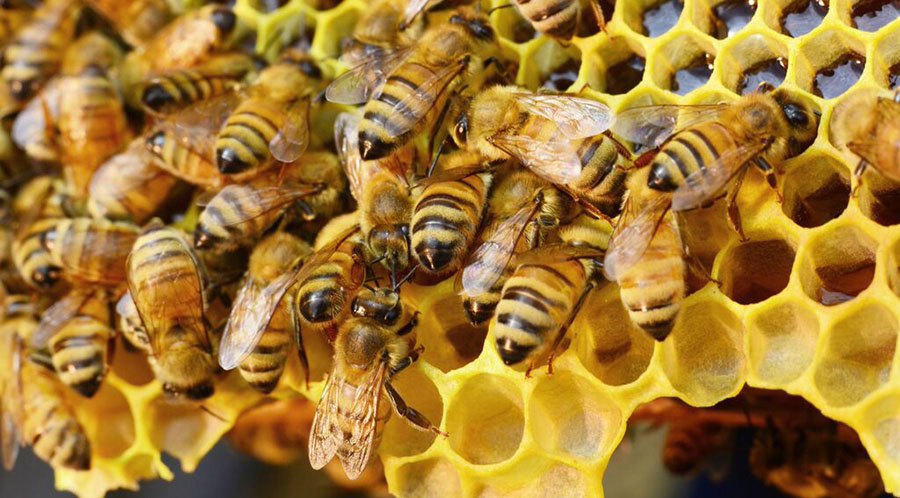BOONE—Tracking the health of honeybees across the U.S. is the work of a multi-university team, including a computer scientist at Appalachian State University.
The Bee Informed Partnership, funded by the U.S. Department of Agriculture, is comprised of scientists from eight universities, including the University of Maryland, Oregon State University, the University of Tennessee and Appalachian. The partnership members are also beekeepers.
Their goal in the $5 million project, now in its final year, has been to track hive loss and document beekeepers’ best practices as a way to mitigate losses.
“We have been collecting a lot of data. The next step is determining what it all means,” said Dr. James Wilkes, chairman of Appalachian’s Department of Computer Science and a beekeeper himself.
More than 6,000 beekeepers from across the U.S. participated in the partnership’s recent survey. Wilkes and his team of four undergraduate students from Appalachian and a computer programmer from the University of Tennessee were responsible for building the database infrastructure for the project enabling beekeepers to submit their information, and the scientists to generate reports based on the data collected.
Beekeepers provided information about the number of bees they keep, how many they lost each year, what their management practices are and techniques they use to manage their bees, among other information.
The information is important for both the backyard as well as commercial beekeepers, according to Wilkes. “The information is collected with the idea that the epidemiologists can look at the data and come up with correlations between particular practices and hive loss,” he said.
For instance, the data collected since the project began indicate that beekeepers who treat their bees for the varroa mite experience fewer losses than beekeepers who don’t treat for the parasite.
Beekeepers in North Carolina who responded to the survey reported that they lost 41.5 percent of their honey bee hives in 2014-15. Nationwide, the number of hives lost was 42.1 percent. Beekeepers in five states reported losses between 60 and 63 percent.
Healthy honey bees aren’t only important for honey production, they are vital to the success of commercial farms where pollination is needed for crop production of vegetables and fruit and nut trees.
“Bees are part of the food system and food security. If they are not able to have hives for pollination at the level needed by the farmers, there will be problems up the food chain,” Wilkes said.
When the USDA grant ends next year, members of the Bee Informed Partnership plan to continue their research.
“We want the grant work to continue,” Wilkes said. “Our goal has been to build a sustainable business model. We have formed a nonprofit organization to carry on this work after the original grant ends in May 2016. Our vision of the program is to identify the best management practices in the current climate of beekeeping. If enough people change a few things, we could reduce the overall loss.”
To learn about Bee Informed Partnership’s latest report, visit http://beeinformed.org.
About Appalachian State University
As a premier public institution, Appalachian State University prepares students to lead purposeful lives. App State is one of 17 campuses in the University of North Carolina System, with a national reputation for innovative teaching and opening access to a high-quality, cost-effective education. The university enrolls more than 21,000 students, has a low student-to-faculty ratio and offers more than 150 undergraduate and 80 graduate majors at its Boone and Hickory campuses and through App State Online. Learn more at https://www.appstate.edu.
What do you think?
Share your feedback on this story.












